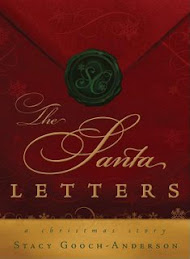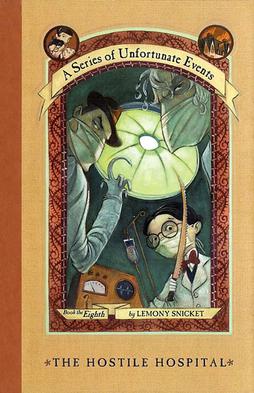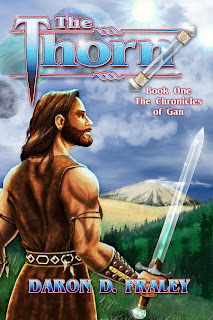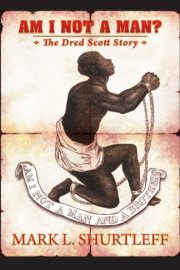
One of the nice things about being a published author is that you get offers to read books before their available in bookstores. Sadly, I have to turn most of the book offers down simply because between working full time and trying to finish my novel, I don’t have as much time to read. Occasionally, a trusted friend recommends a book and I read it. Such is the case with Stacy Gooch Anderson’s The Santa Letters.
To be honest, I’m not much for Christmas-themed books. No, I’m not a Grinch, but I find a lot of Christmas the books to be pretty much the same in terms of message, story, and character. You know, someone finds the true meaning of Christmas and everyone lives happily ever after. However since a friend whose opinion I trust said I should read it, I agreed to review it.
The Santa Letters came and that night while I was writing, Marathon Girl asked if she could read it. I handed her the book and went back to my writing.
“Do you know what this book’s about?” Marathon Girl asked after reading the first two chapters.
“Santa Letters?” I said looking up from my computer.
Marathon Girl rolled her eyes. “No, I mean did you know about the main character? Is that why you agreed to review the book?”
“I don’t know anything about him,” I said.
“The main character’s a woman. Her name’s Emma Jensen.”
“What about Emma?”
“She’s a young widow with four kids.”
“Oh?”
“Yeah, her husband was killed in a hit-and-run accident on Christmas Eve. The book takes place a year later. Basically her life’s fallen apart since her husband died and she’s hoping that her four kids will have a happy Christmas.”
I held my hand out and Marathon Girl handed me the book.
“It looks like I’m not going to see this book again until you’re done reading it,” Marathon Girl said picking up another book in her nightstand.
I nodded and started to read the book. Fair or not, I knew that I was going to judge the book by 1) how believable the widow character was and 2) whether or not she was able to get some sort of closure to her husband’s death and move on with her life.
*** Warning: Spoilers Follow ***
After reading the first few chapters, I was worried. Not only has Emma lost her husband and cry herself to sleep every night but just about everything that could go wrong in her life has gone wrong too. Can’t the fact that her husband died be enough? Do we have to put her just about every other imaginable hardship too? The Santa Letters was starting to read like an Upton Sinclair novel. (No, that’s not a good thing.)
Thankfully, the tone of The Santa Letters began to change once a mysterious visitor begins leaving packages on the family doorstep in the days leading up to Christmas. Instead of simply providing things that the family needs, each package contained things designed help Emma and her children heal from their loss and forgive the man responsible causing the death of their husband/father. Yes, each package comes with a letter “signed” Santa Claus but in reality, the directions and thoughts contained in each letter is one that individual family members need to follow in order to find happiness and peace.
The best part about The Santa Letters, however, is Emma. Anderson does a great job creating a realistic young widow character. Emma tries her best to maintain a strong face when she’s with her children but crumbles under the pressure of grief and providing for her family and when she’s alone. The scenes where Emma is forced to confront her anger about being left to raise the kids and wondering if she can last another day are real and poignant. But her true character is revealed when she has to make the decision whether or not she can truly forgive her the man who accidently took her husband’s life and move on.
From a plot perspective, the book doesn’t contain any unexpected turns or twists. It is a Christmas book, after all. But, thankfully, The Santa Letters it’s more than your standard Christmas book. It’s really a book about healing, forgiveness, and finding peace. It was well worth the read several months before Christmas.





 when it’s released in March. Had I known this was your first novel when I was reading it, I would have been a bit more understanding as a reader. You’re a talented writer and have come a long way since Play Dead.
when it’s released in March. Had I known this was your first novel when I was reading it, I would have been a bit more understanding as a reader. You’re a talented writer and have come a long way since Play Dead. or
or  . If you enjoy those, then check out his Myron Bolitar novels staring with
. If you enjoy those, then check out his Myron Bolitar novels staring with  .
.




